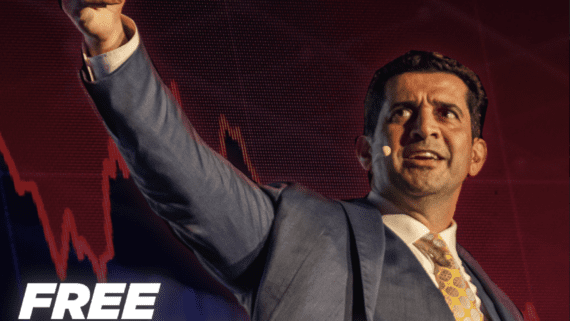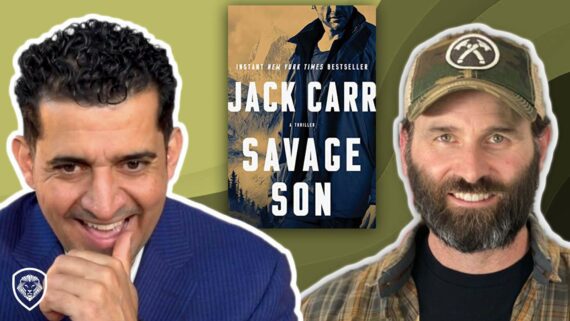10 Decisions Founders Have to Make
There are 10 Decisions Founders Have to Make when starting a business. Knowing these decisions can help you create a strong foundation and a thriving company. Patrick Bet-David shares his personal experience that have led him to build a very successful company.
10 Decisions Founders Have to Make
-
Partner or Go Solo
There is no right answer here. A lot of people end up teaming up with someone too similar and the partnership and the company goes south. A few people go solo thinking they can do it all but find out they don’t have what it takes. You need to realize what type of person you are, what are your strengths, what are your weaknesses. Are you a Jordan who needs a few role players but can go be lead? Or are you a Pippen who needs a lead guy while you focus on what you are good at? To find out more go watch How to Choose Your Business Partner.
-
Startup Capital
There are two options on how you can build start up capital. You can use your own or you can raise money from other sources. Patrick used his own money, built his company, validated who he was in the marketplace, then raised money while not giving away a lot of equity. That’s just one route. You can stitch together capital several different ways you just need to be aware of who owns the equity in your company. There is no one size fits all just like the first point. For more on all the possibilities go watch How to Raise Money as an Entrepreneur.
-
Customer
This is important because you have to get very clear on who your customers. If your watch Valuetainment, there are a lot of videos about this. Every time somebody says, “I want everybody to be my customer,” that’s fine. But the more niche and specific you are at the beginning, the better you’re going to do. The big retailers like Walmart and Amazon started out this way and then they spread out to all markets. McDonald’s forgot their customer and started selling salads and their profits suffered. As the founder, you need to be clear on who your customer is. The video What’s More Important Size or Position goes into more detail on this.
-
Technology
One option for technology is to go cheap with your technology or white label and buy an existing platform. The other option is building your own technology. Option one is cost effective and you can start working with it right away, but you can’t customize to fit every need you have. If you build your technology, it will take time and money but once it is completed and implemented you will see the results. Either option works well in the beginning. If you do start to grow very fast and the company you buy from isn’t ready for that growth, you will have a problem. It is all about timing and budget.
-
Location
For the startup founder that is thinking about location, it’s very important for you to know the location of where you build your headquarters. Patrick’s first headquarters was in LA County that required an additional tax on top of all the other taxes. So, he moved, and that move saved him 80,000 to 100,000 dollars. That is huge when you are just starting your business. You have to think about your location if you are a brick and mortar store, you have to think about location if you are a technology company being near the epicenter that is Silicon Valley. Location matters and it is a big decision.
-
Competitors
How are you going to differentiate yourself? Who are you going to be the marketplace? Who’s going to be direct competitors of yours? Sometimes CEOs and founders don’t like to say somebody is their competitor because they can’t stand that competitor. You must be very clear on who your competitors are and what they have an edge over you and what they don’t. You need to know that this isn’t something you can just look away and say, “Positive thinking. I don’t want to be thinking about that.” That’s not how capitalism works. In a marketplace, if you don’t think about your competitors and what areas they have an edge over you, suddenly, they’re going to take that market share away from you or if you’re a threat and you don’t look at them, they may put you out of business
-
Culture
Culture is different with sales versus support versus home office versus different departments. You need to build the right culture for your business and for each one of your teams. As a founder, you set the tone of your culture. Is it going to be fun like a marketing firm or serious like a law firm? Patrick did a great break down on how to build a culture in the video 24 Ways to Build Great Company Culture.
-
Compensation Plan
Comp plans encompass a lot of moving parts from minimum wage, to profit sharing, to equity, to bonuses. As a founder rewarding your people for achieving a high level of success is crucial for growth and expansion. The only way to do that is to have a clear beneficial compensation plan for every possibility and level in your company. Your compensation plan will dictate the level of urgency and the kind of salespeople you attract, and it’ll also dictate the kind of executives you attract that want to stay with your long-term. Everybody is motivated to get what they want now, so make sure you keep your team compensated and motivated.
-
Method of Marketing
What are you going to be using when you’re driving your product out to people? There are so many ways to do it, but you got to get clear on what fits your product and message. You can do conventional advertising or just create content for a YouTube page. You need to study marketing and all the options before you put yourself in a box too early. There is a video with more sources on this subject called 10 Books to Read About Marketing. Go and watch it.
-
Your Identity and Story
How did you as the founder come up with this idea and company? People want to know what your mission statement is and how did you land on this POV. If you are clear on your identity and your story, everything else will fall into place. This story should inform your position in the marketplace, who your customers are, and how you will take on the competition. If you want more on how to shape your story watch Biggest Mistake Marketers Make.
Next Steps: If you want Patrick to go deeper on any of these topics tweet @patrickbetdavid. We love the feedback and we want to cover what you want to hear more about.
Subscribe to Valuetainment
Visit the official Valuetainment Store for gear
About Valuetainment:
Founded in 2012 by Patrick Bet-David, our goal is to impact entrepreneurs around the world through value and entertainment. We are the #1 channel for entrepreneurs because of the best interviews, best how to videos, best case studies and because we defend capitalism and educate entrepreneurs.
To reach the Valuetainment team you can email: marketing@patrickbetdavid.com
Follow Patrick on social media:










